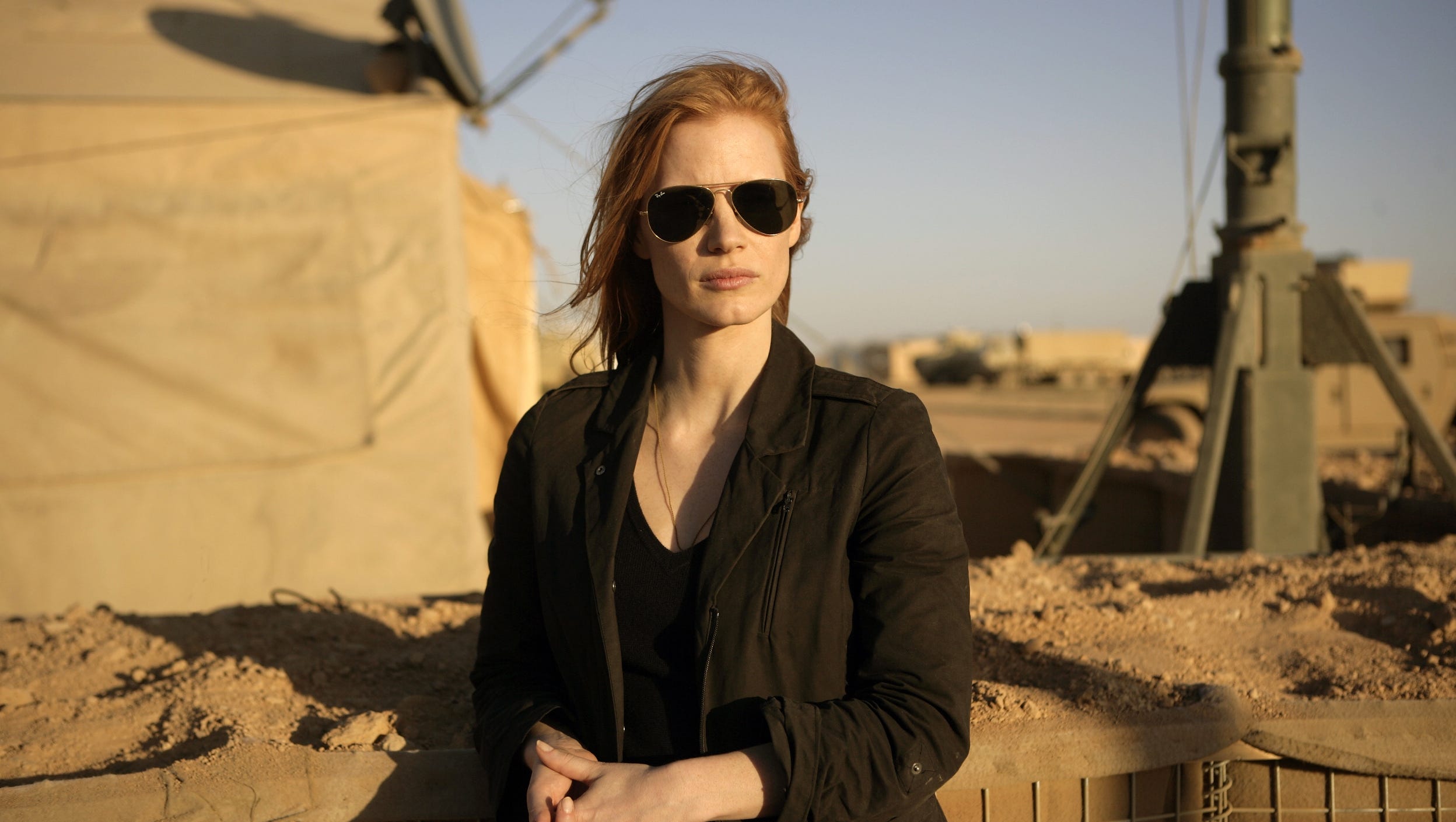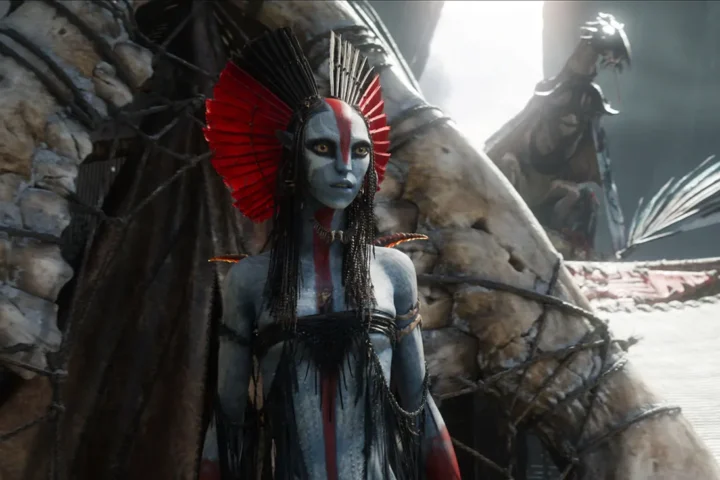Kathryn Bigelow’s Zero Dark Thirty, about the decade-long hunt for and ultimate killing of Osama bin Laden, is an unmistakable masterpiece. It’s also a picture that does not reach out to us with character, sentiment or resolution – and is nonetheless an essential, thought-provoking, non-dramatized piece of investigative journalism from writer Mark Boal (who also collaborated with Bigelow on their Oscar-winning The Hurt Locker) and discussion of the war on terror and its toll on all sides, provocative in its depiction of a U.S. indulging in a “means justify the end” situation to handling prisoners, a necessary evil in the eyes of the film’s unshakable young CIA operatives.
It’s called “enhanced interrogation techniques” in the film, but the buzz at the moment is about torture—whether we engaged in it, how effective it was and if it ultimately led to the Abbotobad, Pakistan compound on May 2, 2011. But the picture is much more than this momentary and reductive national discussion.
As a portrait of obsession and heroism on the part of an intrepid CIA agent—a young woman, no less—it unfolds with the precision of a laser-focused missile, a superb manhunt movie that culminates in a real-time recreation, via night-vision goggles, of the Navy SEALs team that stormed bin Laden’s lair, the most impressive movie sequence this year, helmed by Bigelow with the same intensity and rigor she brought to The Hurt Locker’s tense bomb tech scenes. She really knows how to scale and shoot an action sequence without grandstanding or pandering to an audience. She sets up the shots like carefully calibrated dominoes, then knocks them over one by one, door after door opening into darkness.
The film opens on September 11, 2001, to a black screen and actual audio recordings of telephone conversations by those who died in the towers—a sequence that plays like a sense memory time warp to that black day, before thrusting us forward to a Pakistani “black site” location where al-Queada detainees “will never leave,” and introducing us to novice agent Maya (Jessica Chastain), who reluctantly witnesses a water boarding at the hands of more seasoned Dan (a terrific Jason Clarke). She soon learns these techniques herself and to the pleas of one prisoner replies, “If you told the truth, this wouldn’t be happening.”
Year after year passes with little to go on. When the Bush administration exits and President Obama enters office, interrogation tactics change but the agents, including a seasoned operative (the terrific Jennifer Ehle) working a dangerous lead, continue relentless pursuit. In one key scene she chides Maya for lacking a personal life; indeed Maya is a live to work terminator who won’t stop until mission impossible is accomplished. In this way, she’s not unlike Jeremy Renner’s IED expert in The Hurt Locker, both driven by their jobs and so addicted to adrenaline and purpose that neither can, nor wants to, exist in the outside world.
Assuming that Boal’s first-hand report and facts are correct (and I would bet they have been vetted scrupulously), I was quite surprised to learn that Bin Laden was ultimately brought down by one (very young) woman operating piecemeal on intuition and finding order in randomness, needle-in-a-haystack, old-fashioned detective work for her entire adult life (age 20-30). Her efforts, including roll-up-the-sleeves digging through files and pouring over interview tapes, eventually yield a Pakistani courier who just may be part of the inner cabal. But will anyone in the CIA believe her? It’s eye opening that when eventual raid goes down, no one feels confident in her “100% confidence” about executing the mission, but it’s the best guess they have and they roll the dice.
Zero Dark Thirty is a movie more about our times than any other this year in contention this awards season, and that includes Lincoln which yes, offers a still-timely look at partisan politics and congressional discord and the tricky business of getting laws passed by strong-arming fellow legislators. This picture is onto something different about the way we live, how secure we feel, how unprotected we are and how a precious few heroes might be our only “front line” of intelligence against the spoils of jihad—just a few folks.
Bigelow and Boal present us with a lead character that is defiantly narrow both in construction (obviously a product of Boal’s desire not to divert the procedural to include possible superfluous movie-movie character-building elements) and focus; nothing has been manufactured to give us easy access to this woman. Instead, we are asked to watch her evolve over time and in her work, chasing dead ends all over the Middle East while fearlessly navigating a complex matrix of alpha-male heavyweights, from condescending SEALs right up to the top of the food chain with Panetta himself.
Chastain was handed a very tricky and challenging character in that it is so pared down, but she adds palpable intensity and passion to her job (imagine that, for a woman in an American movie). Her ultimate aim is not to succeed in a world of men, not to advance to Panetta’s level and not merely kill Bin Laden (though that is certainly the primary objective of her obsession), but rather to eliminate an “axis of evil” from the world—strong stuff. The personal cost? It is all there in her final shot when she is asked an unexpected question.
It’s a measure of this film’s integrity that there are no jingoistic happy endings and little release after the tension Bigelow works up in her black ops showdown in the film’s final half-hour. The movie’s intentional lack of catharsis suggests that terrorism, as explained by one of the prisoners, will go on for 100 years. Given that sobering reality, it would be fascinating to see Maya in another picture. As for this one, Chastain may be headed for the Oscar as a non-traditional, original and cool precision character who, in the final analysis, becomes heroic. You can’t say that about any other role this year.
4 stars.



